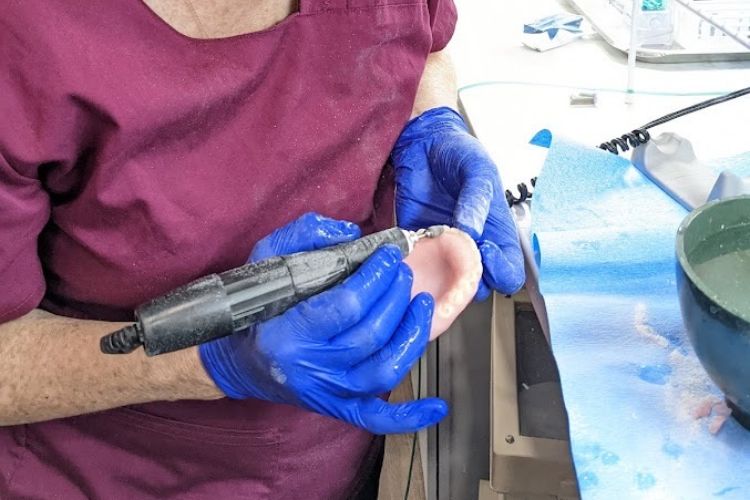Full Mouth Dental Rehabilitation
Revitalize Your Smile: A Comprehensive Guide to Full Mouth Dental Rehabilitation for Lasting Oral Health and Confidence
A confident smile is a powerful asset, contributing significantly to your overall well-being. For a smile makeover and improved oral health, turn to College Hill Dental Group in Easton, PA, the beacon of excellence. Renowned as the best dentist in Easton, this reputable dental practice specializes in transformative full mouth dental rehabilitation.

Understanding Full Mouth Dental Rehabilitation
Full mouth dental rehabilitation, also known as reconstruction or restoration, comprehensively addresses multiple issues throughout the entire mouth. The designed personalized treatment plan restores functionality, enhances aesthetics, and promotes long-term oral health. Individuals with extensive dental concerns, such as missing teeth, damaged enamel, bite problems, or jaw issues, can benefit significantly from full mouth rehabilitation.
The Benefits of Full Mouth Dental Rehabilitation
- Comprehensive Solutions: Full mouth rehabilitation offers comprehensive solutions for a wide range of dental issues. From restoring missing teeth to addressing gum disease and correcting misalignments, this holistic approach ensures that all aspects of your oral health are considered and treated.
- Improved Oral Functionality: By addressing multiple dental issues simultaneously, full mouth rehabilitation enhances oral functionality. This includes improved chewing ability, better speech, and a more comfortable bite alignment.
- Aesthetic Transformation: One of the significant benefits of full mouth rehabilitation is the aesthetic transformation it brings. It addresses stained, misshapen, or damaged teeth, creating a confident, natural-looking smile.
- Long-Term Oral Health: Full mouth rehabilitation ensures long-term oral health beyond immediate cosmetic improvements. By addressing underlying dental issues, the treatment helps prevent further damage and decay, contributing to lasting oral well-being.
The Process of Full Mouth Dental Rehabilitation
- Comprehensive Assessment: The journey begins with a thorough examination of your oral health. College Hill Dental Group’s experienced dentists will assess the condition of your teeth, gums, jaw, and overall oral structures to identify specific issues and create a tailored treatment plan.
- Customized Treatment Plan: The dental team creates a personalized treatment plan based on the assessment to address your unique dental concerns. This may involve a combination of restorative procedures, cosmetic dentistry, orthodontics, and other specialized treatments.
- Step-by-Step Implementation: The dental team implements the treatment plan in stages, addressing various aspects of your oral health. This step-by-step approach allows for precision and ensures that each procedure contributes to the overall success of the rehabilitation.
Why Choose College Hill Dental Group for Full Mouth Rehabilitation in Easton
- Expertise in Full Mouth Rehabilitation: College Hill Dental Group excels in full mouth dental rehabilitation with a proven track record of success. Their skilled team of dentists is adept at creating comprehensive treatment plans, ensuring the best care for you.
- State-of-the-Art Facilities: The Easton, PA facility of College Hill Dental Group is equipped with state-of-the-art technology, creating an advanced and comfortable environment for your full mouth rehabilitation journey.
- Personalized and Compassionate Care: Dedicated to your rehabilitation, College Hill Dental Group works closely with you to achieve your smile goals, understanding the significance of your oral health by providing personalized and compassionate care.They understand the significance of your oral health and work closely with you to achieve your smile goals.
- Reputation as the Best Dentist in Easton, PA: Recognized as Easton’s best dentist, College Hill Dental Group has a stellar reputation for dental care excellence. Their commitment to patient satisfaction makes them the trusted choice for full mouth rehabilitation in Easton.
Contact Us!
Revitalizing your smile through full mouth dental rehabilitation positively impacts both oral health and confidence.
With College Hill Dental Group, trust you’re in the hands of Easton’s best dentist. College Hill Dental Group’s comprehensive approach, personalized care, and commitment to excellence make it the go-to for full mouth rehabilitation in Easton, PA. Take the first step towards lasting oral health and confidence by scheduling a consultation with College Hill Dental Group today. Your radiant smile awaits its transformation.










